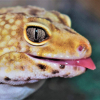Thanks for the info. I've been feeding mine honey on occasion, but then remembered a documentary on colony collapse disorder and what happened with my grandparents' hives. Honey bee's are a little bigger than most ants, so it would stand to reason that even less (affected) honey would do a greater amount of damage to a colony of ants. If I remember correctly, it takes a while for the level of toxicity to build up in the stored honey, so that is a variable to consider as well.
As far as organic honey goes, I never understood how that is possible. Nearly every corn seed available to buy is a GMO. You can choose to buy organic corn if/when you can find it, but what about in your neighbors garden? Or the person a mile up the road? What about the large scale corn producers in the area? I don't imagine that organic honey exists anymore, unless you raise your bee's inside of some sort of enclosed biodome. Trust me, I'd be ecstatic to be proven wrong on that, so please feel free.
Back to ants here - I think I'm only going to use honey on occasion, and it'll be watered down. This issue has hit too close to home for me, and it's an unnecessary risk.
Edited by Jamiesname, October 21 2017 - 6:18 PM.
















